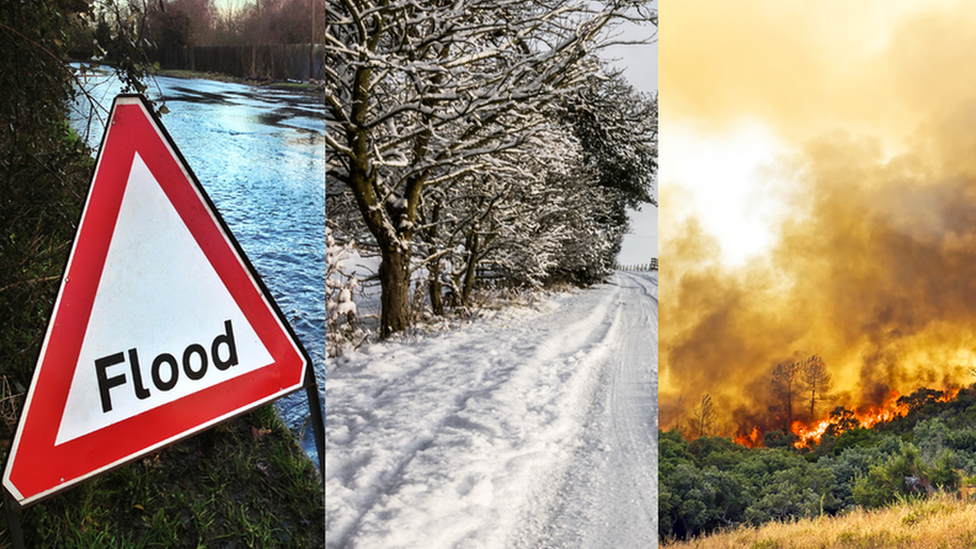How do summer storms differ from wintry weather?
- Published

Huge waves crash into the seafront at Aberystwyth
Bad weather has begun to hit Wales - with more forecast for the weekend and two weather warnings in place.
With the summer holidays in full swing and several outdoor events scheduled across the summer each year, bad weather can scupper plans for many.
Strong winds can also cause travel issues, with bridge closures and ferry and flight cancellations common.
But how bad is the summer weather and what can we do to limit its impact?
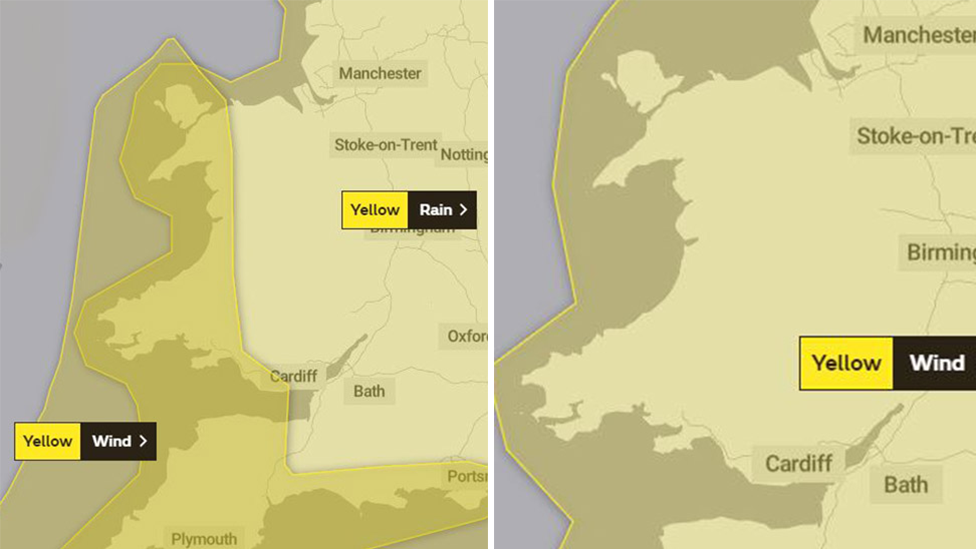
Weather warnings are in place for Friday (left) and Saturday
Lighter winds - bigger impact
Poor weather comes from the same source all year round - low pressure.
Met Office spokesman Oli Claydon said: "The difference being is the depth of the low. During the winter you expected them to be lower, which would be really strong winds. This is more unlikely during the summer."
Although the winds may not be as strong in the summer, there is the potential for more disruption.
"Our weather warnings are impact-based rather than threshold-based. The wind speeds may not require warning in itself, but there may be a warning because there's an event on," said Mr Claydon.
The full effect of this was seen in Cornwall this week, with Boardmasters festival called off with 12 hours' notice due to the weather.
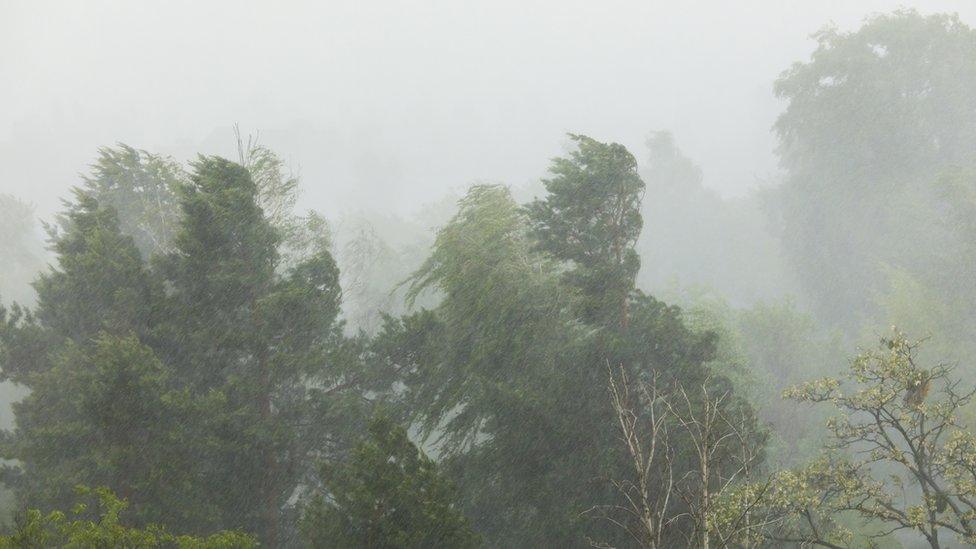
Trees are at higher risk of being blown over by wind in the summer when they are in full leaf
Mr Claydon also said trees were more likely to fall down in the summer: "Trees are not in full leaf in the winter, but they are in full leaf in the summer which can have more of an impact. The leaves act like a sail for the wind."
If you feel like your summer holidays are often a washout - you might be on to something.
According to Met Office statistics, August is the wettest month of the summer, averaging 107mm (4.2in) of rain.
This leaves it only marginally drier than February, although every month from October to January sees significantly more rainfall.
But just because August sees a relatively high level of rainfall compared to the rest of the summer, it does not mean most days will see downpours.
"Statistically August is the wettest month of summer," said Mr Claydon.
"Very thundery weather can deliver a lot of rainfall in a short amount of time.
"In August you're more likely to have that volume of rainfall in three days and then see the rest of the month dry. In winter it's more likely to fall over a longer period."
So if you are out and about this weekend, check the forecast and watch out for any travel disruption - be aware that if the rain does come down, you could be in for a soaking.
- Published7 August 2019

- Published13 October 2018
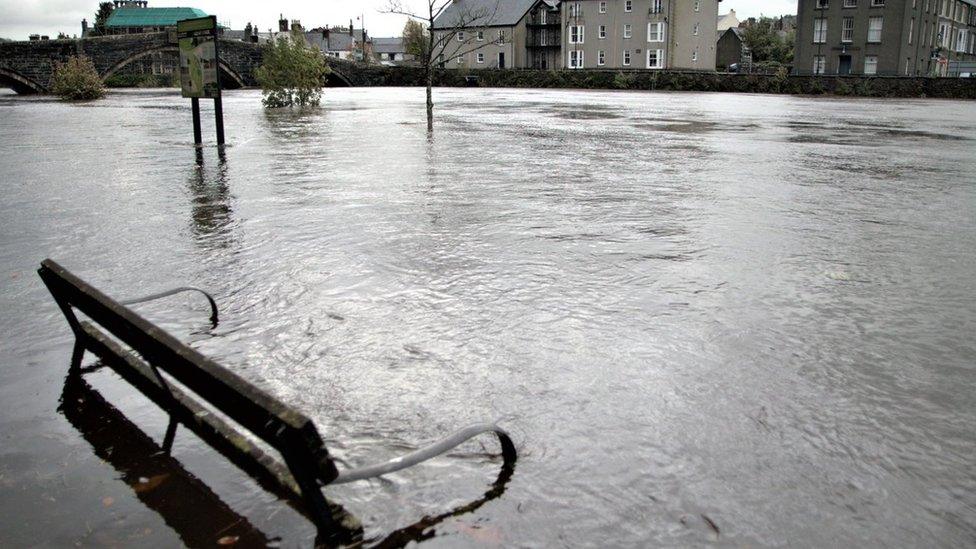
- Published8 August 2019
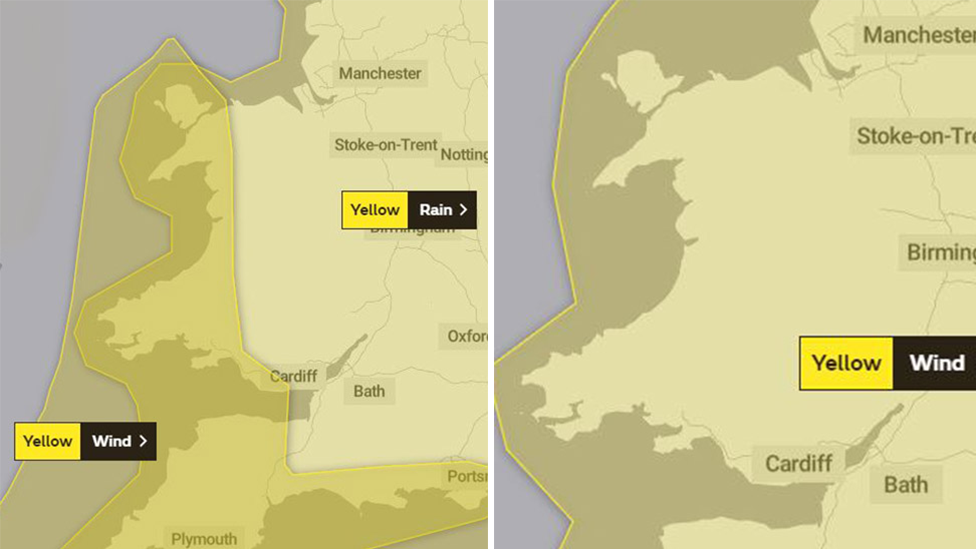
- Published1 March 2019
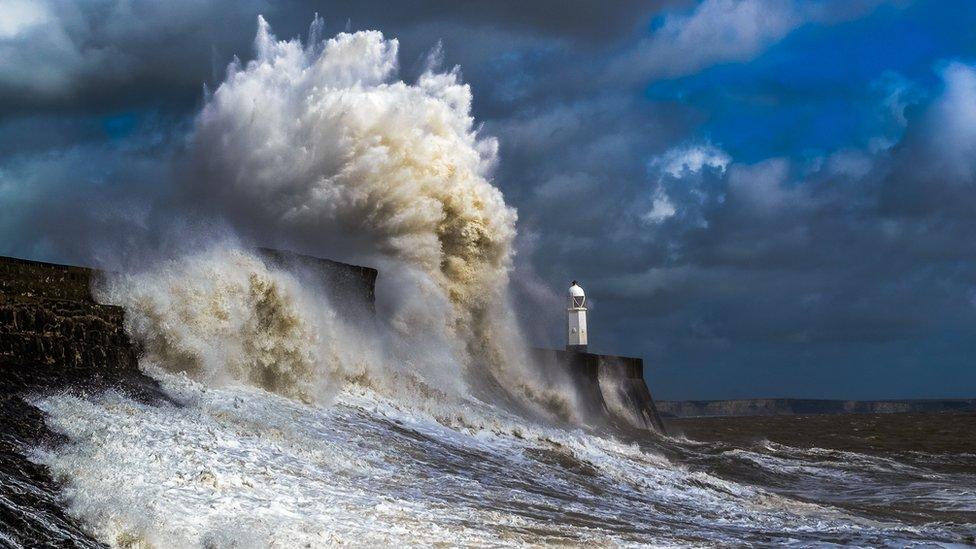
- Published31 December 2018
